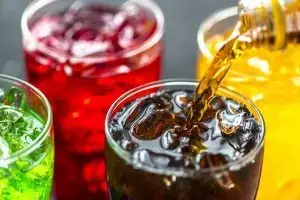- Home
- Medical news & Guidelines
- Anesthesiology
- Cardiology and CTVS
- Critical Care
- Dentistry
- Dermatology
- Diabetes and Endocrinology
- ENT
- Gastroenterology
- Medicine
- Nephrology
- Neurology
- Obstretics-Gynaecology
- Oncology
- Ophthalmology
- Orthopaedics
- Pediatrics-Neonatology
- Psychiatry
- Pulmonology
- Radiology
- Surgery
- Urology
- Laboratory Medicine
- Diet
- Nursing
- Paramedical
- Physiotherapy
- Health news
- Fact Check
- Bone Health Fact Check
- Brain Health Fact Check
- Cancer Related Fact Check
- Child Care Fact Check
- Dental and oral health fact check
- Diabetes and metabolic health fact check
- Diet and Nutrition Fact Check
- Eye and ENT Care Fact Check
- Fitness fact check
- Gut health fact check
- Heart health fact check
- Kidney health fact check
- Medical education fact check
- Men's health fact check
- Respiratory fact check
- Skin and hair care fact check
- Vaccine and Immunization fact check
- Women's health fact check
- AYUSH
- State News
- Andaman and Nicobar Islands
- Andhra Pradesh
- Arunachal Pradesh
- Assam
- Bihar
- Chandigarh
- Chattisgarh
- Dadra and Nagar Haveli
- Daman and Diu
- Delhi
- Goa
- Gujarat
- Haryana
- Himachal Pradesh
- Jammu & Kashmir
- Jharkhand
- Karnataka
- Kerala
- Ladakh
- Lakshadweep
- Madhya Pradesh
- Maharashtra
- Manipur
- Meghalaya
- Mizoram
- Nagaland
- Odisha
- Puducherry
- Punjab
- Rajasthan
- Sikkim
- Tamil Nadu
- Telangana
- Tripura
- Uttar Pradesh
- Uttrakhand
- West Bengal
- Medical Education
- Industry
Cancer risk - artificial sweeteners may not be safe sugar alternatives

Artificial sweeteners reduce added sugar content and corresponding calories while maintaining sweetness.
According to a new study, there is a higher risk of cancer to the tune of 13% in people with higher consumption of artificial sweeteners — especially aspartame and acesulfame-compared to those who did not consume these sweeteners.
The study has been published in the journal PLOS Medicine.
Many food products and beverages containing artificial sweeteners are consumed by millions of people daily. However, the safety of these additives has been a subject of debate. To evaluate the potential carcinogenicity of artificial sweeteners, researchers analyzed data from 102,865 French adults participating in the NutriNet-Santé study. The NutriNet-Santé study is an ongoing web-based cohort initiated in 2009 by the Nutritional Epidemiology Research Team (EREN). Participants enroll voluntarily and self-report medical history, sociodemographic, diet, lifestyle, and health data. Researchers gathered data concerning artificial sweetener intake from 24-hour dietary records. After collecting cancer diagnosis information during follow-up, the researchers conducted statistical analyses to investigate the associations between artificial sweetener intakes and cancer risk. They also adjusted for a range of variables including age, sex, education, physical activity, smoking, body mass index, height, weight-gain during follow-up, diabetes, family history of cancer, as well as baseline intakes of energy, alcohol, sodium, saturated fatty acids, fiber, sugar, whole-grain foods, and dairy products.
The researchers found that enrollees consuming larger quantities of artificial sweeteners, particularly aspartame and acesulfame-K, had higher risk of overall cancer compared to non-consumers (hazard ratio 1.13, 95% confidence interval 1.03 to 1.25). Higher risks were observed for breast cancer and obesity-related cancers.
The study had several important limitations; dietary intakes are self-reported. Selection bias may also have been a factor, as participants were more likely to be women, to have higher educational levels, and to exhibit health-conscious behaviors. The observational nature of the study also means that residual confounding is possible and reverse causality cannot be ruled out. Additional research will be required to confirm the findings and clarify the underlying mechanisms.
According to the authors, "Our findings do not support the use of artificial sweeteners as safe alternatives for sugar in foods or beverages and provide important and novel information to address the controversies about their potential adverse health effects. While these results need to be replicated in other large-scale cohorts and underlying mechanisms clarified by experimental studies, they provide important and novel insights for the ongoing re-evaluation of food additive sweeteners by the European Food Safety Authority and other health agencies globally".
Debras adds, "Results from the NutriNet-Santé cohort (n=102,865) suggest that artificial sweeteners found in many food and beverage brands worldwide may be associated with increased cancer risk, in line with several experimental in vivo / in vitro studies. These findings provide novel information for the re-evaluation of these food additives by health agencies."
https://journals.plos.org/plosmedicine/article?id=10.1371/journal.pmed.1003950
Hina Zahid Joined Medical Dialogue in 2017 with a passion to work as a Reporter. She coordinates with various national and international journals and association and covers all the stories related to Medical guidelines, Medical Journals, rare medical surgeries as well as all the updates in the medical field. Email: editorial@medicaldialogues.in. Contact no. 011-43720751
Dr Kamal Kant Kohli-MBBS, DTCD- a chest specialist with more than 30 years of practice and a flair for writing clinical articles, Dr Kamal Kant Kohli joined Medical Dialogues as a Chief Editor of Medical News. Besides writing articles, as an editor, he proofreads and verifies all the medical content published on Medical Dialogues including those coming from journals, studies,medical conferences,guidelines etc. Email: drkohli@medicaldialogues.in. Contact no. 011-43720751


